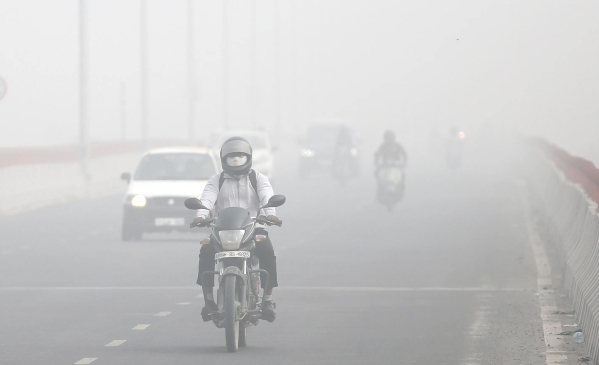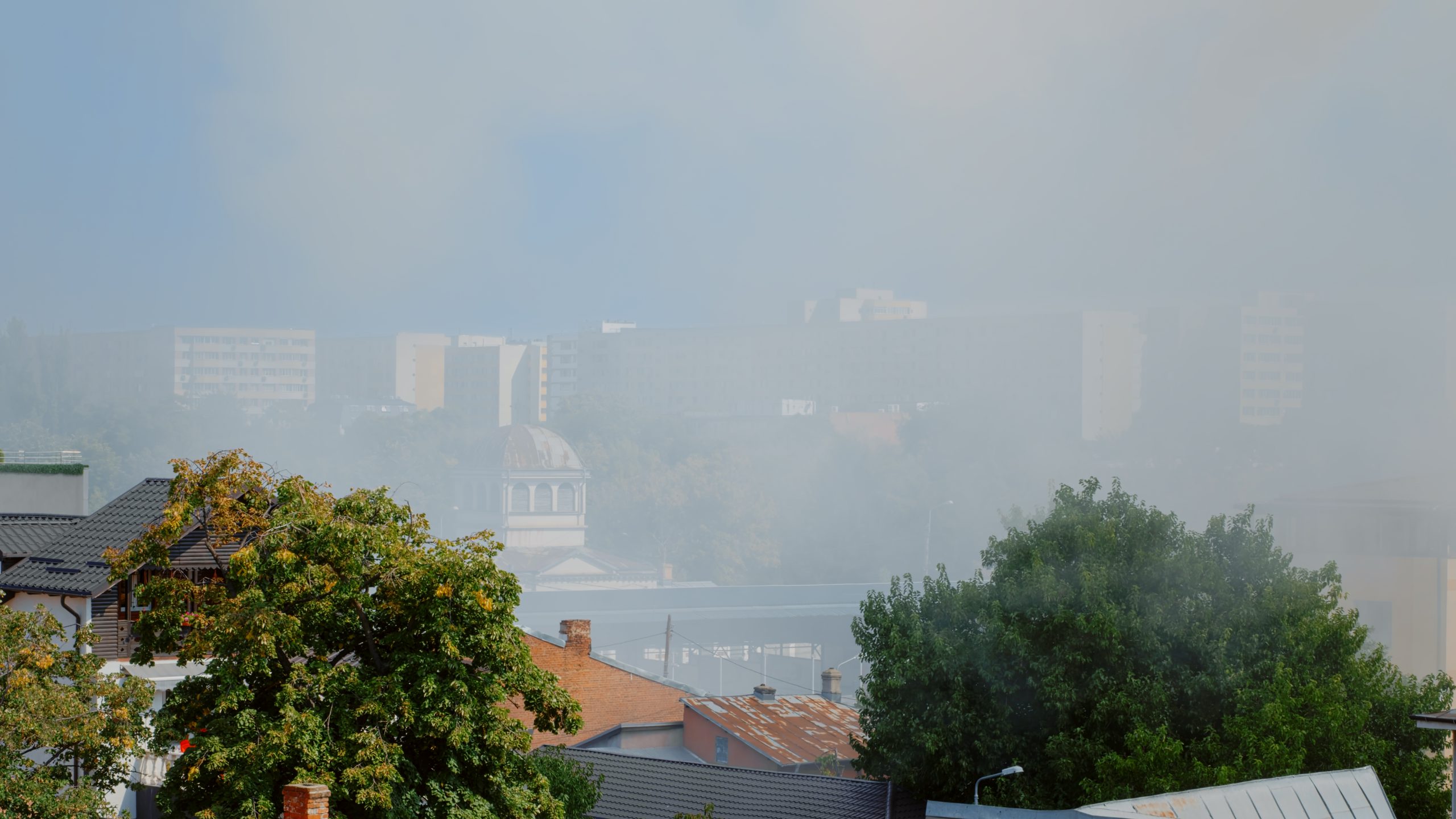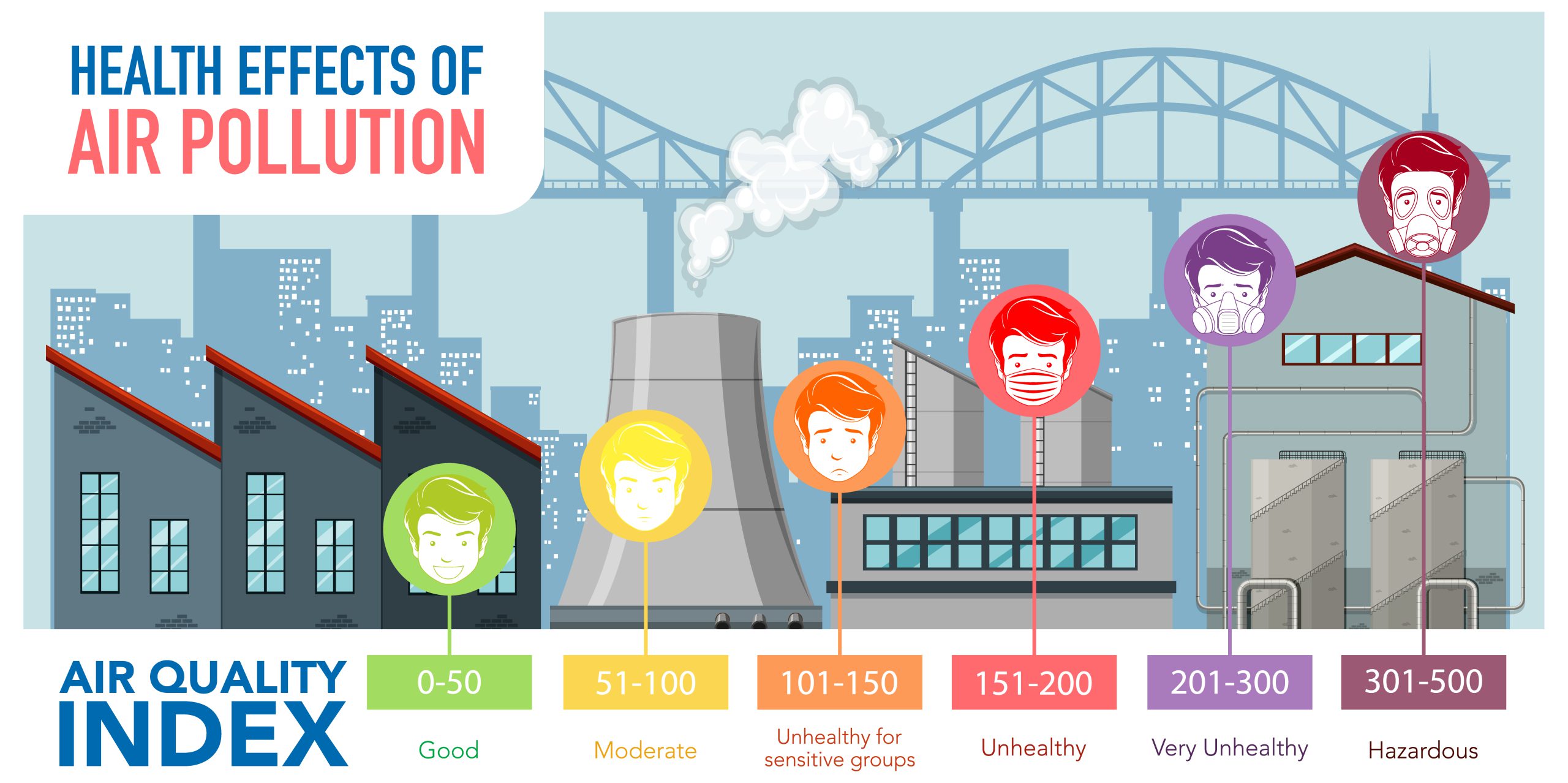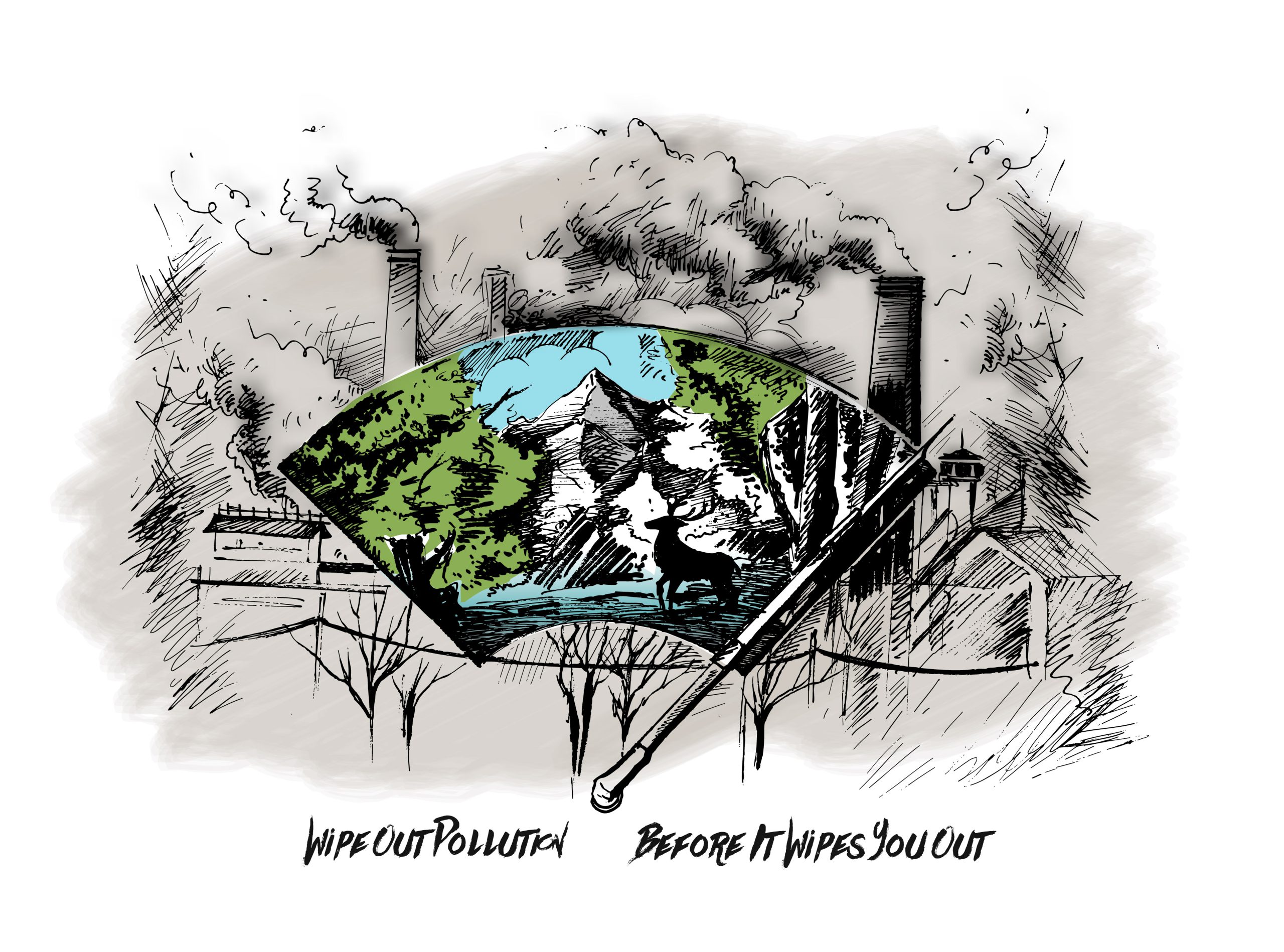
There is one thing about Delhi you’ll absolutely adore: winters
Cold crisp air
Fresh colourful wardrobe
Hot cups of tea
Winter food specialty
The soft wintry sun
Enjoying slow walks in a chilly weather
The bustling city gets lost somewhere in foggy streets
It’s all beautiful…until you burst out into an uncontrollable coughing fit. The beautiful fog is indeed a deadly smog you’ve been breathing.

In winter, smog (smoke + fog) settles over many cities like a huge grey cloud looming over and obscuring the clarity of the sky. And along with temperature, the air quality goes down too. It not only causes massive disruption in daily activities but also creates a public health crisis with a spike in the number of patients, especially those suffering from lung diseases. The common culprit is none other than particulate matter.
Book Pollution Profile and Get 20% Off
What’s Particulate Matter?
Remember Sholay movie’s famous train chase sequence? Amitabh and Dharmendra fight the goons on a running train, which honks annoyingly and lets out a never-ending stream of black sooty smoke.
That’s it. Soot, smoke, dust, dirt, liquid droplets and toxic gases released from car and plane emissions, industries, factories, burning fossil fuels and crops, cigarette smoking, etc., together constitute what we call fine particulate matter (PM), which remains suspended in the atmosphere.

Connection Between Smog and Winter
Air pollution hovers over cities throughout the year, but it becomes evident as a smog in winter because…
- As opposed to the hot and humid air in summer, which rises and expands in the atmosphere, the air in winter is cold and dry. It settles down easily due to condensed water. The qualities of the wintry air make it trap more pollution.
- Winter is the time of chilly nights, campfire, cozy winter wear, and no one ever said no to woodfire settings. Wintry habits, like fireplaces and woodburners, add to smog.
- Diwali, a grand festival we all eagerly wait for, marks the onset of winter. Although I’m glad how the majority of people’s attitude is turning towards saying no to firecrackers, there are still many who can’t refrain themselves from lighting a few. Crackers are yet another reason for increased PM levels.
- “India is an agricultural country,” we all have read this in our geography books back in school. In winter, after harvesting, farmers opt for stubble (residual crop) burning to prepare the field for the next crop, ultimately adding more to smog.
Common Health Hazards
I can’t help but remember the lyrics of a song released by The Police (an English Rock band), “Every breath you take, I’ll be watching you.” Despite the “fine”ness in its name, PM is deadly. With every breath, the particles enter and lodge deeply inside your lungs and gain easy access to penetrate the bloodstream. Once inside the bloodstream, nothing can escape these tiny particles.
It all starts with short-term effects, like irritation of nose, throat, and eyes as well as skin problems and hair damage. The long-term effects are as follows:
- Respiratory diseases: Asthma, chronic obstructive pulmonary disease, lung tissue swelling and irritation, lower respiratory infections (like pneumonia, flu and bronchitis)
- Cardiovascular diseases: Heart attack, stroke, etc.
- Impact on liver, kidney, reproductive organs
- Developmental damage: Increased risk of low infant birth weight and slow/stunted lung development in children
- Lung cancer
- Premature death: PM causes >6·5 million premature deaths annually, and the number continues to grow at an alarming rate.
If you have any pre-existing health conditions, chances are smog will make it more challenging, leading to increased emergency room visits and hospital admissions, not to mention missed work and school.

Better Protect Than Regret
Make a run for it, but not in mornings
Exercising is essential, including running or walking, but not when outside air is toxic. Smog is strongest in the morning time. So if you run, walk or engage in any outdoor activity, wait till the smog reduces through the day or shift these activities to evening. But no excuses for skipping your workouts altogether.
Use face masks when outdoor
One thing I’ve gotten used to since the COVID-19 pandemic is face masks. Now, like many people, you must be thinking that N95/N99 face masks are no longer mandatory under COVID-19 regulations. But my response to you will be the same, “I wear it for pollution.”
Go with the flow and ventilate
You think it’s safe inside? Well, indoor pollution is way worse than outdoor one. Make sure the house is properly ventilated, especially the kitchen and bathroom. Open your windows and doors during sunny hours and allow the air to circulate. On a bright sunny day, the concentration of PM is often low in the air.
Air-purifying plants
Nature is the best solution for every man-made problem. Go ahead, bring inside your office and house some nature. Air-purifying plants, like tulsi, aloe vera, spider plant, money plant and ivy (not the poisonous kind surely), purify air and minimise indoor pollution.
Use air-purifiers
Use air purifiers, especially in the room of elderly, kids and pregnant women. These groups tend to have lower immunity and are more susceptible to health hazards than others. Also, purify and ventilate your car air, better yet drive less and use more public transport.
- Take steam daily and eat healthy–nutritious diet for strong immunity
Testing at Thyrocare
Smog is the biggest health hazard in winters. Thyrocare has launched Pollution Impact – Basic & Advanced packages to combat health threats arising due to air pollution. It helps you better understand your heart health and the overall impact of air pollutants on the body, including on lipid, liver and kidney profiles. You can also better understand your immunity, blood and sugar profiles, vitamins and essential elements and take appropriate measures to protect yourself this season.
